1. Victory over Genocide Day:
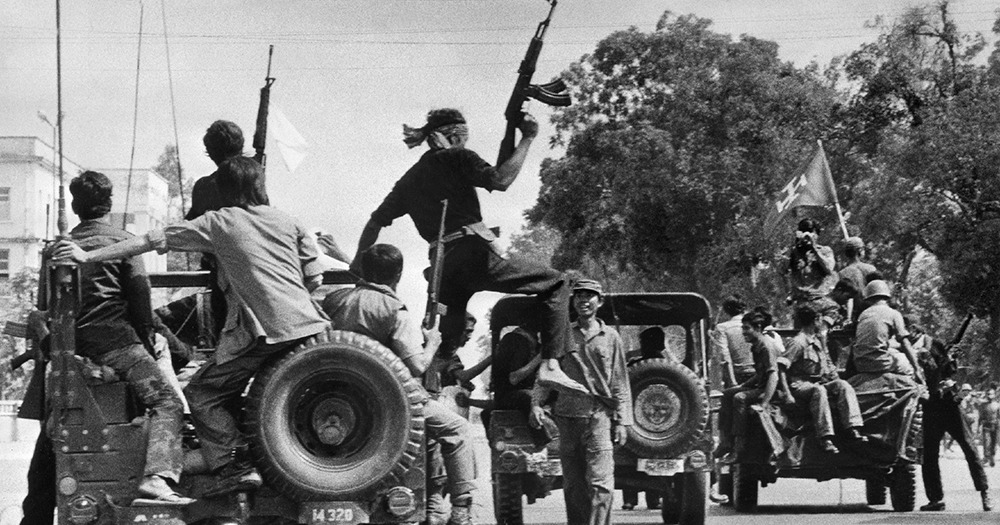
Observed on January 7th, commemorates the end of the Khmer Rouge regime in Cambodia. On this day in 1979, Vietnamese forces and Cambodian resistance groups liberated the country from the brutal rule of Pol Pot, which had led to the deaths of approximately 1.7 million people through starvation, forced labor, and executions. The day is marked by remembrance and reflection on the resilience of the Cambodian people and the ongoing pursuit of justice and healing. It serves as a poignant reminder of the horrors of genocide and the importance of preventing such atrocities in the future.
2. Khmer New Year:

Known as “Chaul Chnam Thmey,” is Cambodia’s most significant and widely celebrated holiday, marking the end of the harvest season and the arrival of the New Year. Celebrated from April 13th to 16th, it is a vibrant festival filled with traditional dances, colorful parades, and festive gatherings. Families clean their homes, make offerings at temples, and engage in joyous activities such as water fights and traditional games. The holiday is a time for Cambodians to honor their ancestors, seek blessings for the coming year, and enjoy time with loved ones.
3. Visak Bochea Day:

Also known as Visakha Bucha, is a significant Buddhist holiday celebrated in Cambodia to honor the birth, enlightenment, and passing of Buddha. Observed on the full moon day of the lunar month of Visakha, which usually falls in April or May, the day is marked by religious ceremonies, meditation, and acts of merit. Devotees visit temples, offer alms to monks, and engage in prayers and rituals to reflect on the teachings of Buddha and cultivate spiritual growth. It is a time for Buddhists to renew their commitment to the path of compassion and wisdom.
4. King Norodom Sihamoni’s Birthday:
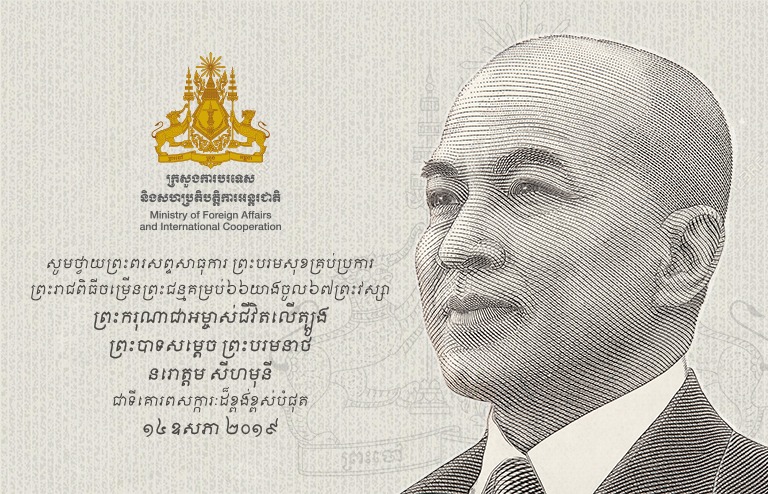
King Norodom Sihamoni’s Birthday is celebrated on May 14th and marks the birthday of Cambodia’s current monarch, King Norodom Sihamoni. Born in 1953, King Sihamoni ascended to the throne in 2004, following the abdication of his father, King Norodom Sihanouk. The day is a national holiday, featuring ceremonial events, cultural performances, and public gatherings to honor the King’s contributions to the nation. It is a time for Cambodians to express their respect and admiration for their sovereign and celebrate the unity and heritage of the country.
5. Nation Day of Remembrance:
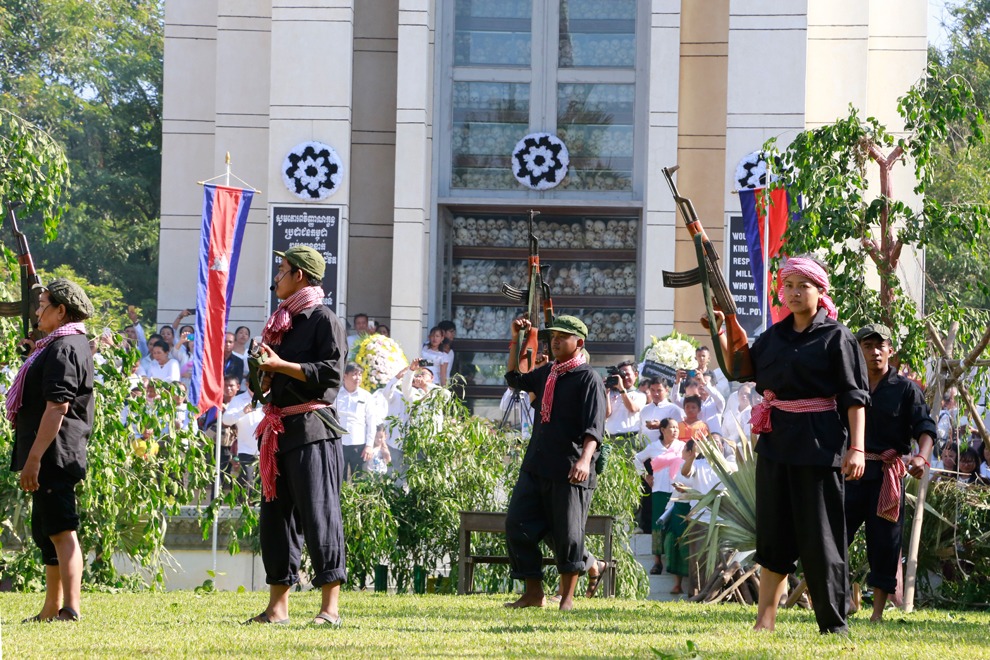
Observed on May 20th in Cambodia, is a solemn day dedicated to honoring and reflecting on the victims of the Khmer Rouge regime. This day marks the anniversary of the fall of Phnom Penh in 1975, when the Khmer Rouge took control of the country, leading to a period of severe repression and atrocities. The day is marked by memorial services, educational events, and moments of silence to remember those who suffered and lost their lives. It serves as a powerful reminder of the nation’s resilience and the importance of preserving peace and human rights.
6. King’s Mother Norodom Monineath Sihanouk’s Birthday

The ceremony is celebrated on June 18th and honors the mother of Cambodia’s current monarch, King Norodom Sihamoni. Born in 1936, Queen Mother Monineath Sihanouk has been a beloved figure in Cambodian history, known for her contributions to the country’s cultural and social development. The day is marked by ceremonial events and public celebrations, reflecting the nation’s respect and appreciation for her role in Cambodia’s history and her continued influence on its heritage.
7. Constitution Day:

Observed on September 24th, commemorates the adoption of Cambodia’s current constitution in 1993. This significant day marks the restoration of the monarchy and the establishment of a democratic framework following decades of conflict and turmoil. The constitution, which reinstated King Norodom Sihanouk and outlined the principles of governance and civil rights, is a cornerstone of Cambodia’s modern political and legal system. The day is celebrated with ceremonies and activities that highlight the country’s commitment to democracy, rule of law, and national unity.
8. Pchum Ben

This is a significant 15-day Buddhist festival in Cambodia honoring deceased ancestors. It’s a time for families to reunite, visit pagodas, and offer food and prayers to their departed loved ones. Believed to be a period when the spirits of ancestors return, Cambodians express their respect and gratitude during this solemn yet joyful occasion.
9. Commemoration of Late King Father, Norodom Sihanouk
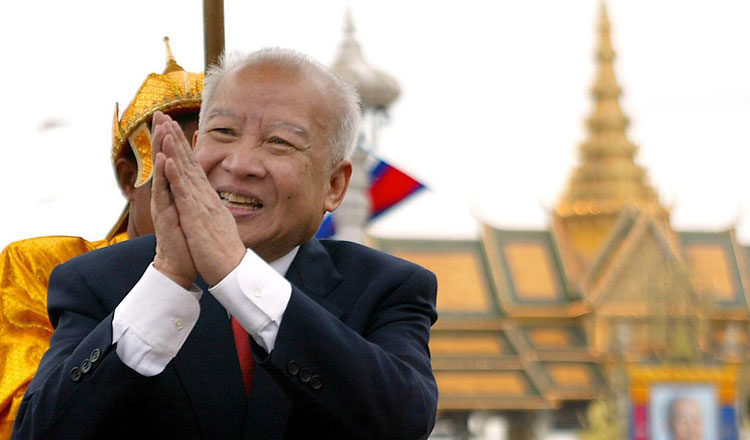
Observed annually on October 15th, this solemn day honours the memory of King Father Norodom Sihanouk, a revered figure in Cambodian history. Known for his pivotal role in Cambodia’s independence and his tireless efforts for national unity, the King Father is deeply respected by the Cambodian people. This day is marked by nationwide tributes, reflecting on his legacy and expressing gratitude for his contributions to the nation.
10. Cambodia Paris Peace Agreements Day

Commemorated on October 23rd, this day marks the signing of the Paris Peace Agreements in 1991, which officially ended the Cambodian-Vietnamese War. This historic event marked the beginning of Cambodia’s journey towards peace, democracy, and reconstruction after decades of conflict. While no longer a national holiday, the day is still observed with reflections on the importance of peace and the progress made since the signing of the agreements.
11. King Norodom Sihamoni’s Coronation Day:
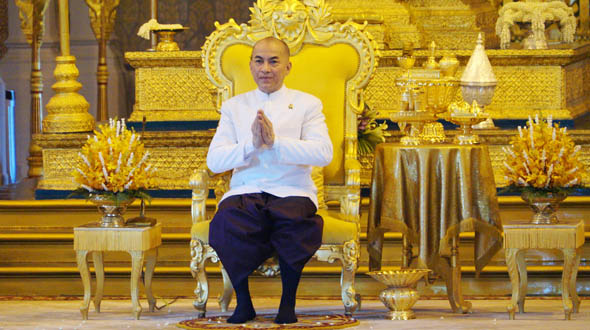
Celebrated on October 29th, marking the anniversary of his formal coronation in 2004. This significant event marked the ascension of King Sihamoni to the Cambodian throne, following the abdication of his father, King Norodom Sihanouk. The coronation was a momentous occasion that symbolized the restoration of Cambodia’s monarchy and the beginning of a new chapter in its history. The day is observed with various ceremonial events, including religious ceremonies and public celebrations, reflecting on the King’s role in leading and representing Cambodia, as well as the country’s rich royal heritage.
12. Independence Day:

Celebrated on November 9th, marks the anniversary of the country’s independence from French colonial rule in 1953. This significant national holiday commemorates the end of over 90 years of colonial control and the restoration of Cambodian sovereignty. The day is marked by patriotic ceremonies, including flag-raising events, speeches, and cultural performances, reflecting on Cambodia’s journey to self-determination and celebrating its national identity and heritage.
13. Bon Om Touk, or the Water Festival
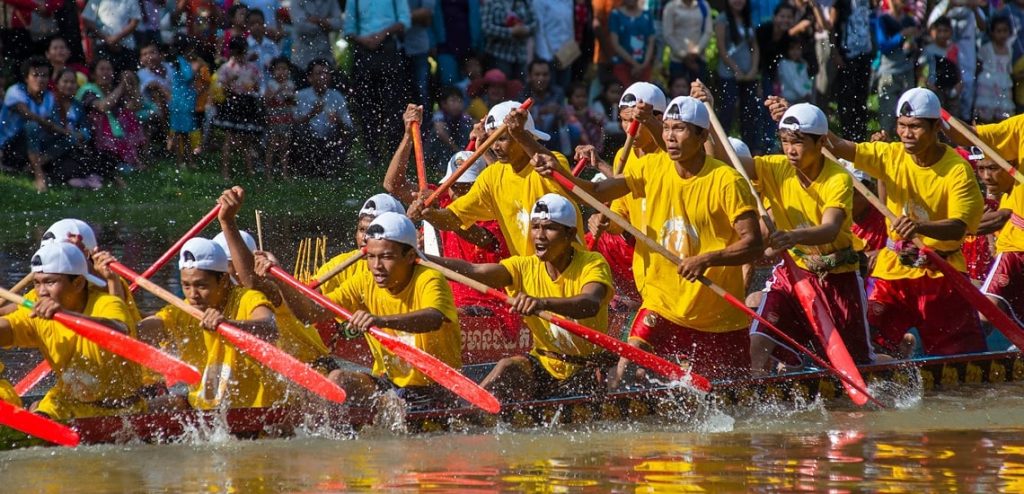
The festival is a vibrant Cambodian festival celebrated in November, typically coinciding with the full moon. This festival marks the end of the rainy season and the reversal of the Tonle Sap River’s flow, which is a critical natural phenomenon in Cambodia. The Water Festival is renowned for its spectacular boat races, where colorful boats compete on the Tonle Sap River, alongside lively parades, traditional music, and fireworks. The event is a time for Cambodians to celebrate their cultural heritage, enjoy festive activities, and give thanks for the bountiful harvest season.
